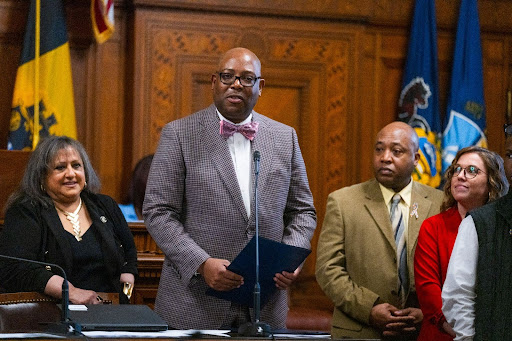Minimum-Wage Jobs Must be Fixed!
No one, and especially the vulnerable members of society, deserves to experience financial stress that impacts their daily happiness in their routine or limits their future.
Nearly 30% of high school students have a job for at least a portion of the school year, and 50% of youth ranging from 16 to 24 are employed. Minimum wage jobs are often thought of as starting teen jobs, which is a logical conclusion for many to draw. As of 2020, 16 to 19-year-olds accounted for 37.5% of those paid the federal minimum wage. With so many students taking interest in the job market, and in particular, minimum wage jobs, the reality is many do not supply enough money for the time and effort taken from the working class. Typical teenage jobs fail to meet the needs of students, and especially adults that are working for them. This leaves the most disadvantaged individuals worse off.
Both Pennsylvania and the federal minimum wage is $7.25 per hour. Doing the math, these wages as full-time jobs (40 hours in a week) fall below the poverty line. A single person living alone cannot make more than $27,180 and a family of four cannot make more than $55,500 with the minimum wage, meaning they cannot surpass the bare minimum amount of income deemed as adequate for basic living standards (defined as the poverty line). Minimum-wage jobs often give only part-time hours, and teenagers who go to school receive an even smaller portion of take-home cash. Minimum-wage jobs pay such low wages that teenagers who rely on them fall below the poverty line, and with states like Wyoming and Georgia having minimum wages as low as $5.15, teenagers are paid shockingly low.
The effort required in these positions is not anything to scoff at, either. Jobs in the service sector often require dealing with challenging customers and cleaning for hours on end. Minimum wage jobs supply tedious work and reward little for the hard effort placed. Marcel Craig, an Allderdice sophomore, commented how the least favorite part of his job is the work itself. He expresses how he is not given any freedom to actually help with making donuts at Dunkin’ Donuts, but rather, is forced into other tasks. This tale is one reflected across many minimum wage and service jobs, as when management roles are filled by higher-ups, there is only cleaning work, shelving, and other repetitive tasks that students like Marcel are forced into doing. Another Allderdice sophomore, Noah Solomon, agrees, saying how the singular reason he did not leave his job sooner was because of his coworkers, not the work itself. Many workers like Solomon and Craig relate to the burden of having to work. Minimum-wage jobs often have employees working odd hours and shifts that change regularly week-to-week on how long and when the hours come in. Some weeks, there are not enough hours for working parents needing to support their families. Other times, a student could be scheduled for too many hours to be able to maintain grades. In either scenario, minimum-wage jobs are not pleasant, as the work is monotonous and often involves a lack of mentally-stimulating tasks like cleaning and serving often heartless customers. Minimum-wage jobs hand a pay inaccurately low to the dulling work they carry.
Additionally, an important point to acknowledge is teenagers are not the only ones laboring in these harsh jobs. Rather, teenagers in poverty’s parents work similar jobs as well. With more than 4 in 10 children who start life in poverty while staying in poverty, minimum wage jobs currently make climbing up the economic chain difficult and even impossible for many to leave their lower-economic status and the problems associated with it. Children born into poverty are likely to grow into adults staying in poverty, and their kids unfortunately have been statistically proven to continue the alarming cycle. With wages so low, it is hard for parents or their children working these positions to climb out of poverty, as parents may have previous debts to pay off or bills to maintain. Parents have to regulate present circumstances before they can worry about themselves or their child’s future, meaning they are not going to save much for their children’s future, as they have nothing to save. Since teens, especially those in poverty, may not receive enough assistance from their parents economically coupled with such a low starting wage, it can be challenging for them to succeed and climb out of poverty in the future. This is mainly because of their low wages.
Adding on, the future promises only more challenges to escaping poverty. The average cost of college expenses per student in the United States is $35,331 for a singular year alone. The cost of college is expensive and only continues to grow. The average cost of college has more than doubled in the 21st century, with an annual growth rate of 6.8%. Education is a necessity for many students to find jobs, as even entry-level positions are requiring degrees that were not expected before. With the high costs of college and low pay jobs, the possibility of teenagers who start in poverty escaping it grows slimmer. Jobs continue paying their low wages while higher-paying jobs expect costly education to even get considered in applications.
Even with the bonuses, many fast-food chains offered during the pandemic, the stream of income is not a guarantee. If positions are filled up again with enough demand, these jobs will lower their wages once again to the minimum wage. It is important that relying on worldwide illness for better pay is not the solution, but rather, creating a consistent expectation of higher wages is.
With the stresses of low-income jobs and economic stresses, it makes sense as to why 21% of low-income youth suffer from mental health disorders. No one, especially the vulnerable members of society, deserves to experience financial stress that impacts their daily happiness in their routine or limits their future. The nature of minimum wage jobs must be changed, as the pay must be increased.



















